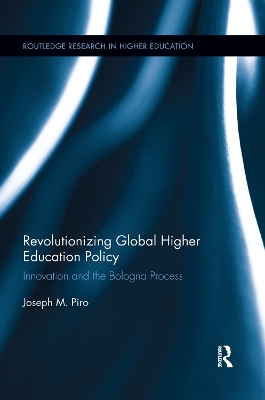Routledge Research in Higher Education
1 total work
The 'traditional' university model has been transformed globally, fueled by disruptive technologies, new learning platforms, increasing fiscal austerity, and the rise of knowledge economies. The Bologna Process, a European initiative intended to streamline higher education standards and qualifications, offers modernized, innovative pathways to learning including shortened degree timetables and a three-cycle system. Now comprised of 48 participating countries, the initiative has had a significant impact across global higher education. This volume examines the issues central to the Process as told from the viewpoints and experiences of stakeholders who have been involved with it at various stages of progression.
This volume explores the significant successes and challenges the Bologna Process has faced over the last decade, where it is now, and where it is headed. It presents data on countries and individuals involved with the Process as well as students' growing connections and concerns about Bologna reforms. It also looks ahead to the Europe 2020 goals and what these may represent to differential policy actors, not only for the group of original signatories, but for those countries newer to the Process.
